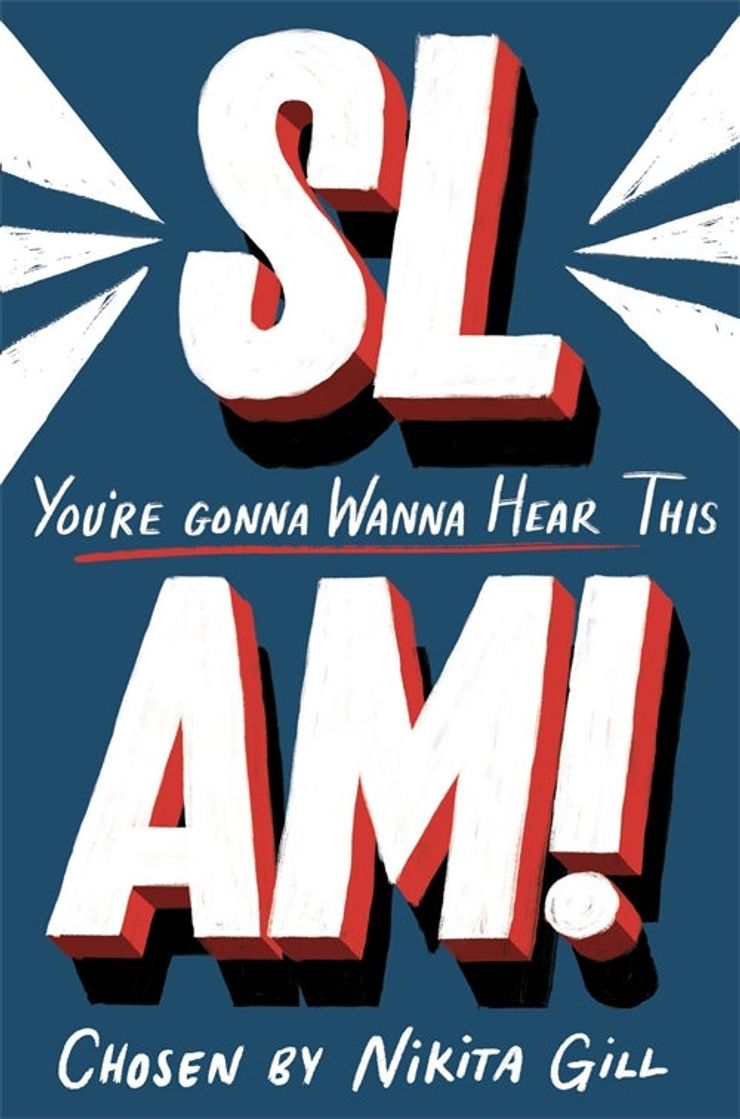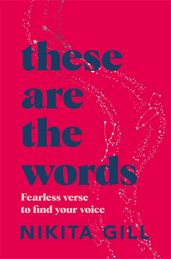Nikita Gill on performance poetry and her anthology SLAM!
Nikita Gill explains why we need a different kind of poetry, and we share some poems from some of the incredible poets included in Nikita’s anthology SLAM!

Our passion for poetry is growing, particularly among young people, with performance poets having a huge influence on the art form’s resurgence. Poetry slams offer a welcoming space where a diverse range of voices can be heard, bringing poems to life for an audience who may otherwise have only experienced them in school textbooks. And with the announcement that GCSE English Literature students will be able to drop poetry completely if they wish in 2021, other avenues to access the form could not be more necessary.
Here, Nikita Gill explains why all poetry is real poetry, and why performance poetry is so vitally important. We also share some incredible performances from the artists included in Nikita’s anthology SLAM! You’re Gonna Want to Hear This and a downloadable sampler featuring some of the poems from the collection.
All poetry is real poetry.
Walk into a room and ask anyone for their definition of poetry. No two people will be able to give you the same answer. Poetry has become the fastest-growing art form in Britain, and that isn’t just from traditional poets or from printed collections. It is in no small part due to the resilient and powerful work of performance poets and spoken word artists. And slams are the platform that have allowed for this growth.
A slam, for those who do not know, is a competition where poets perform their verse on stage in a set amount of time and are marked by judges from the audience, or sometimes by guest judges. Judges take into account many things: audience reaction, the delivery and the beauty of the verse. It’s about connecting with an audience and letting them in on a secret.
When I write poems, I approach the mediums I place them on with equal importance – whether I put them on a blog, on Instagram or submit them to literary journals. It never occurred to me that posting my work on a certain medium would mean I would then be defined by that medium. This is why I find such a kinship with performance-based poets.
‘One kind of poetry is not superior to another due to the format it is produced or shared in.’
To define a poet who performs their work as a ‘slam poet,’ and to suggest that ‘slam poets’ aren’t ‘real poets’ is a myopic misrepresentation of the work they do. There is no such thing as slam poetry – simply poetry that works in slams. There are no slam poets, only poets who, with immense craft, have the added skill of performing their work in a way that enthralls an audience. One kind of poetry is not superior to another due to the format it is produced or shared in.
For years, poetry has been misconceived as an area of elite literature which is for the privileged few to craft, learn or teach a certain way. It has been sequestered to the classroom as something that made us groan as we studied and peeled layer after layer off Milton’s work in an attempt to understand just what he meant.
But what if there was a different version of poetry? What if we let it out of the classroom and put it on stage? What if poetry is remembered to be what it is: the language of fire, fury and freedom? What if, and bear with me, poetry was for everyone again?
‘What if poetry is remembered to be what it is: the language of fire, fury and freedom?’
This is exactly what performance poetry is about. It reminds us of the revolution poetry incites. People from all walks of life flock to venues or YouTube to watch their favourite poets perform on stage, using language they can relate to, incorporating humour with tragedy in an almost Shakespearean way. Slams are an inclusive, open space, giving poets from under-represented communities a supportive environment to share their truth, and presenting it in a format so easily accessible and unpretentious that people who have never engaged with poetry before are finally able to.
Slam! You’re Gonna Want to Hear This is a manifesto for change in many ways. It is a manifesto for performance poetry, the craft and beauty of it and the way it resonates with millions of people. It is a manifesto for poetry itself, as poets are natural truth-tellers and bring us face to face with honesty in a time where fact is being dismissed for opinion. It is a manifesto for compassion and how important it is in a world that is ever more divided.
The poets in this book are awe-inspiring. Their work is transcendent, both on the stage and on the page. Without them, poetry would not be what it is today: empowering, immensely emotive, approachable, wise and humorous – and all of this plus stunningly and thoughtfully constructed.
Each of the poems in this book is a gift of truth. These voices are urgent and they deserve to be heard.
‘After all, poetry is not a luxury, certainly not in the world we live in today. It is a war cry – a battle song.’
But enough from me. As has been said by our ancestors in art, let the work speak for itself. Allow these words to wash over you and sit with you. Speak them out loud, so the truth rings loud and clear. Digest the power of this book slowly the way I did the first time I read it.
After all, poetry is not a luxury, certainly not in the world we live in today. It is a war cry – a battle song. And you’re gonna wanna hear this.
I hope you find what you are looking for in these pages.
With verse, warmth and love,
Nikita

Sampler - SLAM! You're Gonna Want to Hear This - Nikita Gill
Watch Sunnah Khan perform her poem 'How Now Brown Cow':
Watch Suhaiymah Manzoor-Khan perform her poem 'This Is Not A Humanising Poem' at The Last Word Festival 2017:
Listen to Nikita Gill perform her poem 'Everything I Never Asked Him':
Listen to Fathima Zahra read her poem 'Sargam':
Listen to Dean Atta read his poem 'Self-portrait with an iPhone':
SLAM! You're Gonna Wanna Hear This
by Nikita Gill
This anthology is a joyful celebration of the groundbreaking performance poets who are making a splash in the world of spoken word. From well-known artists such as Raymond Antrobus and Sophia Thakur to up-and-coming poets, this is the perfect introduction to the world of modern poetry.
These Are the Words
by Nikita Gill
Taking you on a journey through the seasons of the soul, in this collection Nikita gives you the words to help heal from your first breakup, to celebrate finding your family, to understand first love, to express your anger and your joy, to fight for what you believe in and to help you break some rules to be your truest self. Gorgeously illustrated throughout by Nikita herself and featuring seasonal astrological poetry, this collection is an achingly beautiful, stunningly warm and fearless expression of truth from one of the most influential and well-known voices in modern poetry.




